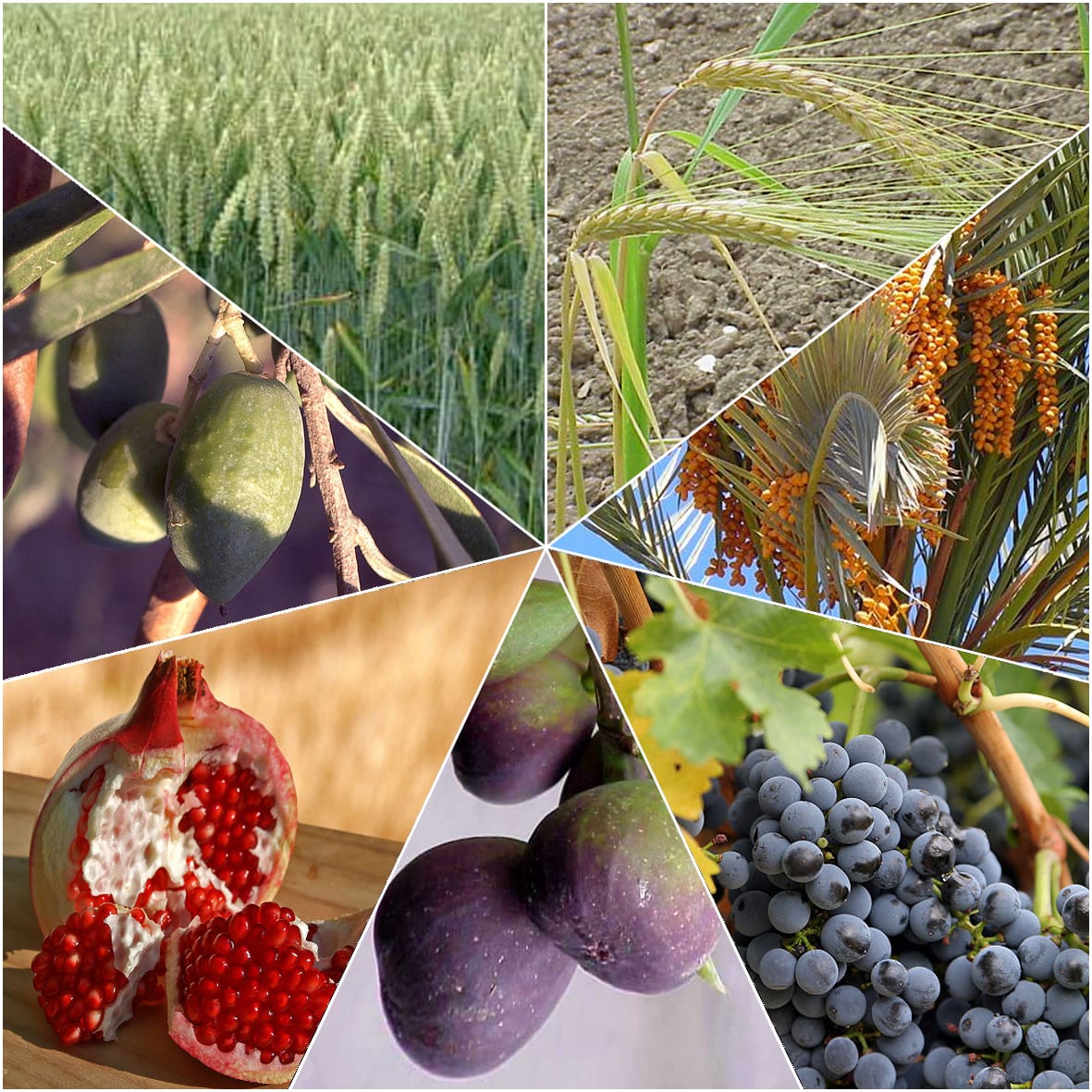As we mentioned last week, there are special rules of blessing for the “seven species” mentioned in the Torah as the praise of the Land of Israel: Wheat, barley, grapes, figs, pomegranate, olives, and dates (Devarim 8:8). These kinds of produce have priority over other kinds in making a first blessing (SA OC 211), and they have a special long after-blessing (“one like three” – SA OC 208).
We explained that according to Rav Natan of Breslav, all blessings in effect connect us to the Land of Israel. The land of Israel, which was a special gift of Hashem given to the Jewish people who do His will, reminds us that all worldly enjoyments are really a benefice provided by God to those who do His will, particularly those who acknowledge His sovereignty by making blessings. We showed how Rav Natan connects the verses teaching the requirement to make blessings on food with the special status of the land of Israel.
Afterwards Rav Natan draws an additional connection, also based on the gemara. From the verse in Devarim mentioning the seven species, the gemara learns that these types of produce have priority in making a blessing. Yet Rav Chanan objects that these species are mentioned for a different reason. Each one is mentioned to teach a specific measure needed for some Torah commandment. For example, wheat teaches that the amount of time needed for “eating” is the duration of eating a certain quantity of wheat bread. Barley teaches us that human bones cause defilement only if they are the size of a barley corn. Olives teach us that for most intents and purposes (significant) “eating” takes place only when we eat the volume of an olive (Berakhot 41a,b).
Rav Natan explains that these two aspects are actually intimately connected. We can understand his explanation by pointing out that Chasidic thought often emphasizes the paradox that the only way we can perceive the infinite light of the Divine is through the occlusion effected by the material world. If we try to apprehend the Divine presence directly, we will be blinded by the light, destroyed by its intense lambency. (This is sometimes referred to as “the shattering of the vessels”.) Yet if we are too much sunken in worldly matters, the Divine light is excessively occluded; we have a diminutive, insufficient appreciation of God’s presence. The commandments of the Torah create a balance between the two extremes of blindness and occlusion, giving us a way of approaching and apprehending holiness without being overcome by it, through the fulfillment of Divine precepts via aspects of our material existence.
This balance is particularly exemplified by the concept of measures. Measurement invariably implies limitation. Indeed, our Sages tell us that “blessing does not inhere in anything weighed or anything measured or anything counted, but only in that which is hidden from the eye” (Taanit 8b).
Yet while blessing does not inhere in that which is finite and measured, only something finite and measured can serve as a conduit for blessing. When Elisha performed a miracle for the poor woman whose creditors were about to enslave her sons, he told her to borrow all kinds of vessels from her neighbors; all these were miraculously filled with oil (Melachim Bet 4). Now this miraculous blessing was dependent on the fact that no specific amount of oil was promised; rather, as long as there were vessels to receive the blessing, it continued. Yet the finite vessel was a necessary precondition for the miracle; Elisha did not make miraculously create a vat of oil.
The Land of Israel is the ultimate conduit for Divine blessing; indeed, Rashi explains that the blessing of the entire world is obtained through the blessing and Providence of the Land of Israel (Commentary to Devarim 11:12). So we give precedence in our blessings to those species which characterize the Land of Israel, which are simultaneously those species which themselves exemplify the idea of a Torah measure, constituting, like the Land itself, a conduit through which Divine blessing can be realized in the material world. – (Likutei Halakhot Blessing on Fruit 2)
Rabbi Asher Meir is the author of the book Meaning in Mitzvot, distributed by Feldheim. The book provides insights into the inner meaning of our daily practices, following the order of the 221 chapters of the Kitzur Shulchan Arukh.
The words of this author reflect his/her own opinions and do not necessarily represent the official position of the Orthodox Union.



